Mar Louis Sako, Patriarch of the Chaldean Catholic Church, staged a historic visit to the Republic of Turkey in April. Along with visiting Christian refugees expelled from Iraq by the Islamic State, His Beatitude held a rite in the recently restored Mar Petyun Chaldean Church in Diyarbakir. In his speech during the rite, the Patriarch celebrated the current Turkish government, which he claimed boasted “a civilised regime, but not a regime based on religion” and one that could play a leading role in Sako’s aim of bringing about “peace and love”. Sako also said the time had come to move on from what he described as the “massacres of 1915” – an “old history that is not the responsibility of the new Turkey.”
The Patriarch’s comments would come as a surprise to the Armenian inhabitants of the Syrian border town of Kessab, the site of deportations and massacres carried out by Turks a century ago. In late March of this year, the citizens of Kessab began to observe Turkish army units being replaced by ‘irregular’ bearded forces who would soon force them out of their homes and ransack their town. The extent of Turkey’s support for the Sunni extremist groups genocidally cleansing Yazidis, Christians, Druze, and other non-Sunni communities is increasingly well documented. Prominent among these groups is the Islamic State, the entry of whose fighters into Syria has been facilitated by the Turkish army. Those same fighters have been treated in Turkish hospitals, and receive direct logistical support from the Turkish army in some of their operations.
Alongside the promotion of Sunni fiefdoms governed by absolutist interpretations of Sharia, Erdogan and his AKP party have done much to introduce Islam into the domestic political life of Turkey, a process accompanied by the greater accrual of power to the presidency and a range of autocratic measures targeting free speech and political and social liberties. Erdogan has brandished Qurans at public events and has attacked his non-Sunni, non-Turkish opponents based on their religion and ethnicity. In the run up to the recent elections, AKP politicians advised against voting for Ali Atalan, a Yazidi candidate in the opposition Kurdish-led HDP party, as he was a “pagan”.
The quest for justice is not a mere footnote of the past: it is a way of clarifying the present and building for the future. Exalting a tokenistic gesture like being allowed to perform a rite was a significant step backwards in those processes. (And why should Christians need approval to conduct services in a secular state?) It was also an untimely gesture. On this year, the centenary of the Assyrian genocide – part of the same historical tragedy as the Armenian and Greek genocide – several voices have been added to the chorus recognising the atrocity. These include the Armenian parliament, and even the Pope himself, who infuriated Ankara by using the term ‘genocide’ in reference to the Armenian genocide, alongside mentions of the massacres of ‘Assyrians and Chaldeans.’
But in his presentation in Turkey, Mar Sako only referred to the murder of the descendants of his own denomination at the hands of the Turks (and Kurds) of a century ago. In mentioning the communities whom he claimed had historically lived together peacefully in Turkey, he omitted the name ‘Assyrian’. In doing so, the Patriarch continued a long tradition of hostility by Chaldean and Syriac Orthodox Patriarchs to the one national identity that, owing to its historical veracity, has alone united the ethnically indistinguishable adherents of these Syriac Churches, who lived in a contiguous area until the genocide and speak dialects of the same language in which they refer to themselves as ‘Suraya’, a variant of the self-designation used by ancient Assyrians.
Mar Sako spoke of nationalism as “the source of all problems” in the region. But for too long have eastern Christian Patriarchs acquiesced to have only the moustached tyrant or the big state and army above them in the hierarchy of power (with God in the sky above both.) The Iraqi and Syrian states and their pan-Arab ideologies seized or subsumed much of what is valuable, diverse and dignified about ethnic, communal, and local life, offering only coerced unity and the mirage of security in return. The struggle of the ‘Syriac Christian’ communities to assert themselves independently against the unravelling of these states has unmasked the failure of these arrangements and the ideas underlying them.
The rise of religion as a force in Iraq (and with it, inevitably, sectarianism) is not limited to Muslims. Within the religiously ghettoised political system in Iraq, Christians are presented in a bloc, and so it was only natural that Mar Sako, as head of the largest church in Iraq, spoke on behalf of all ‘Iraqi Christians’ at the UN in March.
But Mar Sako’s aversion to nationalism does not extend to Iraq. In 2009, Mar Sako spoke out against the plan to create a province in the Nineveh Plains, the only area of Iraq that has a demographic ‘majority of minorities’. The status of the Nineveh Plains as one of Iraq’s ‘disputed territories’ had impeded implementation of the political needs therein, paramount among them locally derived security, and this was made vividly clear as the Kurdish peshmerga withdrew from the Assyrian heartland hours before ISIS entered it last summer, forcing some 150,000 inhabitants to flee. Despite the fact that the Nineveh Plains project was conscientiously and diligently put forward within the constitutional framework of Iraq (hardly an approach that characterises the actions of Iraq’s other peoples) Sako sought to associate any attempt at increasing the degree of self-governance afforded to the inhabitants of the area as a perilous bid to create a “Christian ghetto” that would “lead to endless sectarian, religious and political clashes”, an accurate description of Iraq since 2003 without a province in Nineveh. Now Mar Sako has been forced into advocating international protection for the very areas that were emptied due to the failures f the two Iraqi governments.
His Beatitude has moored his community to Iraqi sovereignty and KRG quasi-sovereignty. But over the past two weeks, Turkey has demonstrated its flagrant disregard for these sovereignties by bombing PKK targets in northern Iraq. In the process, many Assyrians have been forced to flee their villages. Every major actor in the region disregards borders and sovereignty in an attempt to safeguard or advance their interests. Christians in Iraq are a glaring exception.
With the denial of ethnicity comes the denial of meaningful politics, and with the denial of history comes the denial of the attempt to secure the future. The failure here lies not merely with Mar Sako, whose actions are, after all, commensurate with his position and role, but with Assyrian political parties, who struggled under conditions of tyranny to assert their ethnic and national rights within a free Iraq but now choose only to represent themselves by denominational names or under the banner of Christianity. The devastating events of a century ago are repeating themselves. As Assyrians continue their seemingly unlimited flight from Iraq, and the destruction of Iraqi Christianity continues unabated, the #Assyrian people find themselves with nothing but religion to fall back on when the state has failed them and Assyrian leadership is most sorely needed.






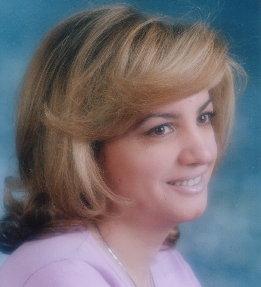

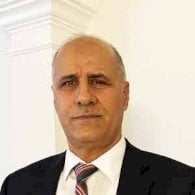
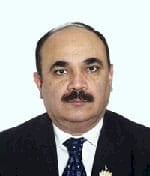
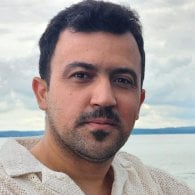
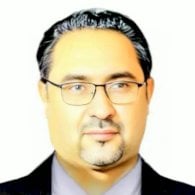



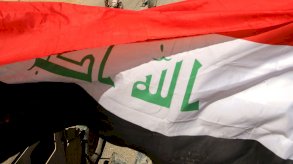
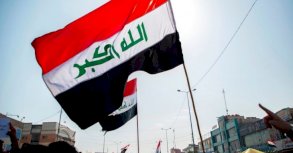
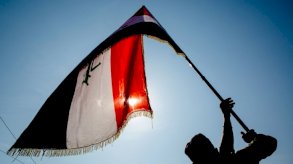
التعليقات